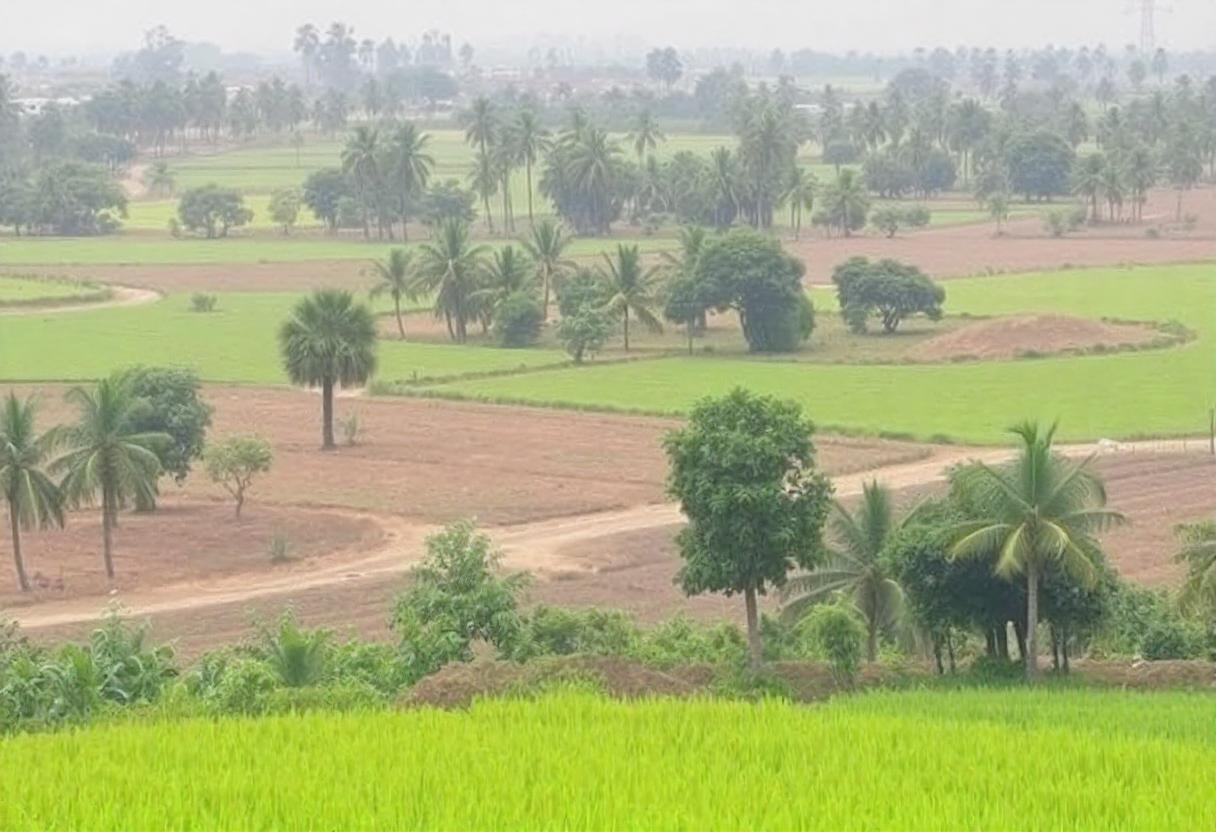
Karnataka, a state located in the southwestern region of India, is known for its diverse agricultural landscape. The state’s varied climatic conditions, soil types, and topography create distinct agriculture zones, each supporting different types of crops and farming practices. Understanding these zones is essential for optimizing agricultural productivity and sustainability in the region.
Climate Zones
Karnataka features several climate zones due to its geographical diversity. The primary climate zones include:
- Tropical Wet Zone: Found in the coastal regions of Karnataka, including areas like Mangalore, this zone experiences high temperatures and heavy rainfall. It is ideal for crops such as cashew nuts, coconut, and areca nut.
- Tropical Dry Zone: The interior regions, including parts of Belagavi and Bagalkot, experience less rainfall and higher temperatures. This zone is suitable for crops like cotton, groundnut, and sorghum.
- Sub-Tropical Zone: The northern and northeastern parts of Karnataka, such as Hubballi and Gadag, have moderate temperatures and rainfall. This zone supports the cultivation of crops like maize, sunflower, and soybean.
Soil Zones
The soil types in Karnataka vary significantly, affecting agricultural practices and crop selection:
- Black Soil (Regur Soil): Predominantly found in the Deccan Plateau region, including districts like Kolar and Tumkur, black soil is rich in nutrients and ideal for cotton, jowar, and pulses.
- Red Soil: Found in the southern and southeastern parts of the state, such as Mysuru and Channarayapatna, red soil is suitable for crops like ragi, pulses, and horticultural crops.
- Alluvial Soil: Present in the river valleys of the state, such as along the Krishna and Cauvery rivers, alluvial soil is fertile and supports the cultivation of rice, sugarcane, and vegetables.
Topographic Zones
The topography of Karnataka, which includes plains, hills, and plateaus, creates distinct agricultural zones:
- Lowland Plains: The coastal and river valley regions, including the fertile delta areas of the Cauvery River, are characterized by flat, lowland plains that are ideal for rice cultivation and vegetable farming.
- Plateaus: The Deccan Plateau, with its elevated terrain, supports the cultivation of crops like millet, pulses, and cotton. This zone requires specific water management practices due to its topography.
- Hill Slopes: The Western Ghats and other hilly areas of Karnataka, including parts of Kodagu and Chikmagalur, are suitable for growing plantation crops such as coffee, tea, and spices.
Key Agricultural Regions
- North Karnataka: This region, including districts like Bagalkot and Belagavi, is known for its dryland farming and cultivation of crops like groundnut, cotton, and maize.
- Central Karnataka: Areas such as Tumkur and Hassan are recognized for their mixed cropping systems, including both food grains and cash crops.
- South Karnataka: This region, encompassing districts like Mysuru and Kodagu, is famous for its plantation crops, including coffee and spices, as well as high-value horticultural crops.
Understanding these agriculture zones in Karnataka allows farmers to make informed decisions about crop selection, resource management, and farming practices, leading to improved productivity and sustainability in the state’s diverse agricultural landscape.